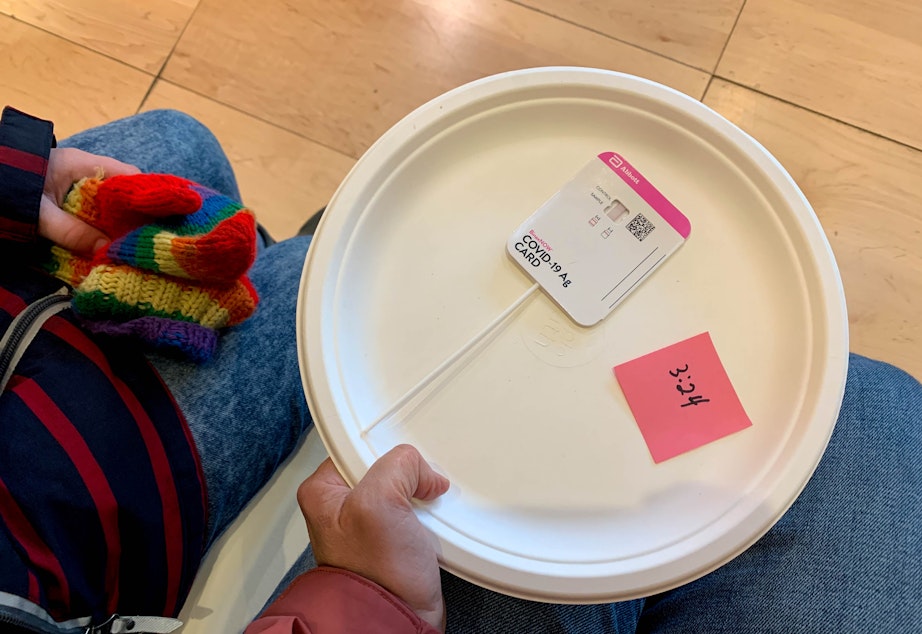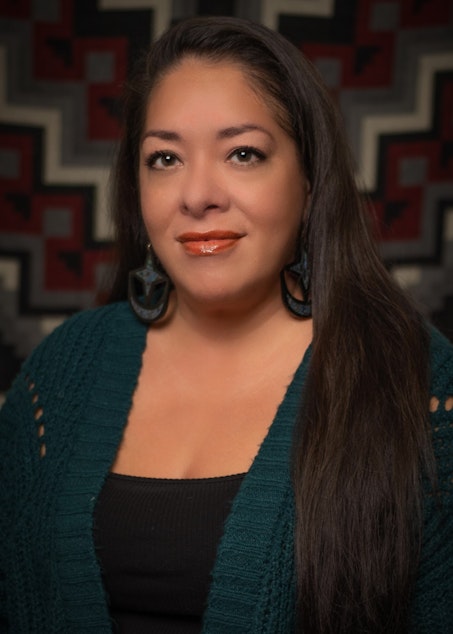So you got Covid. Now what?

King County is seeing record breaking Covid infection numbers due to the omicron variant. There's a good chance you, or someone you know, will get Covid.
So if that happens, what should you do?
Abigail Echo-Hawk (Pawnee) is the executive vice president of the Seattle Indian Health Board and director of its research division, the Urban Indian Health Institute. She says her health center has been inundated with coronavirus cases.

Echo-Hawk told KUOW's Soundside that "60% of the current calls that came into our nurse line over the last week, were around people suspecting that they may have Covid or are experiencing Covid symptoms."
"We're doing everything we can to get them tested, if they're positive to get them resources," she said. "And we are pushing so hard to ensure that those who are unvaccinated get the opportunity to get vaccinated, which is still your best protection against Covid-19."
Sponsored
But for those who are already vaccinated and get Covid: what should you do?
- Get boosted. If you're not already, Echo-Hawk says staying up to date with your vaccinations and boosters is the best way to protect yourself.
- Isolate. No one likes to do it, but it's the best way to keep your loved ones safe. The CDC recommends isolating for five days after symptoms begin, then wear a mask when around others. But Echo-Hawk further suggests taking an at-home Covid test, then waiting 24 hours, and then taking a second test to confirm that you're no longer contagious.
- Have supplies at home. Be ready to spend five days at home by having enough food, medicine, and anything else you need to be comfortable.
- Call for help. If you're having trouble breathing, persistent pain or pressure in your chest, are confused or unable to wake up, or if your nails or lips are turning gray or pale or blue colored, call 911.
Sponsored
Don't forget to say "thank you"
Echo-Hawk also had one more ask for anyone that visits a health center during this spike in cases — thank your care providers. Healthcare workers are handling overwhelming case numbers, and many aren't getting the same appreciation they did at the start of the pandemic.
So next time you're at the Seattle Indian Health Board, or any other medical center, make sure you treat your medical provider with kindness.
Click the audio above to hear Soundside's full conversation with Echo-Hawk.





